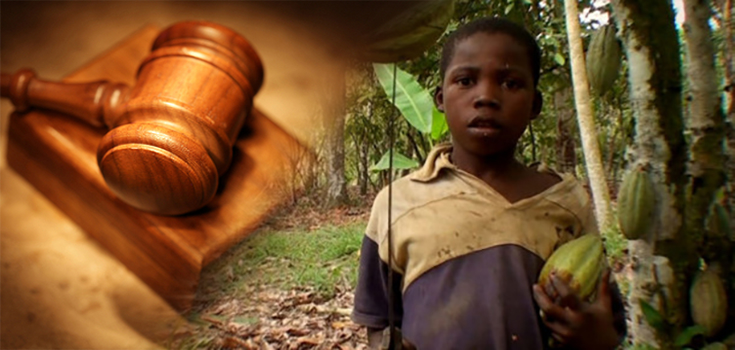Child Slaves Receive Favorable Supreme Court Ruling Against Nestle, Others

This week, the U.S. Supreme Court ruled on a lawsuit filed by former child slaves who once worked for Nestle. The court’s decision finalizes a lower court’s prior ruling, which Nestle previously attempted to overturn in an attempt to halt legal ramifications from individuals who worked in the African cocoa trade as children. In other words, Nestle failed in crushing a lawsuit that will hold the company liable for using child slave workers.
Nestle tried to have the child slavery suit thrown out, even though the mega corporation tried to win favor with local farmers to look the other way while they used child salve labor to source cocoa in the cheapest manner. West African nations are some of the largest exporters of cocoa, and though Nestle does not employ child slaves directly, the company consistently engaged in business deals with farmers who do.
The plaintiffs, originally from Mali, contend the companies aided and abetted human rights violations through their active involvement in purchasing cocoa from Ivory Coast. While aware of the child slavery problem, the companies, including Nestle, Archer-Daniels-Midland Co, and Cargill Inc, offered financial and technical assistance to local farmers in a bid to guarantee the cheapest source of cocoa, the plaintiffs said.
As Anti-Media summarized:
“Nineteen children freed from slavery near the Ivory Coast — and their new guardian — detailed the staggering conditions of the cutthroat trade: the young children worked ‘from dawn until dusk every day’ and were forced to sleep in small sheds. They were given a tin cup in which to urinate.
The children endured a six-month ‘breaking in’ process which included regular beatings. Sadly, they had difficulty understanding why they were not paid for their hard labor, which included carrying 100-pound bags of cocoa beans and, often, exposure to hazardous conditions.”
A 2000 documentary, Slavery: A Global Investigation, a documentary highlighting this issue, detailed the working conditions children face in West African nations.
Related: Does Nestle Still Think Water is Not a Basic Human Right?
Companies like Nestle claimed they had no idea that this was going on, but it is a long held belief that mega-corporations like Nestle not only knew of these hazardous conditions for children, but also helped to create them.
CNN’s ‘Cocoa-nomics’ also details how the industry abuses children’s rights in order to meet world cocoa demand.
![Photo credit: 10Campaign [1]](https://naturalsociety.com/wp-content/plugins/wp-fastest-cache-premium/pro/images/blank.gif)
Additional Sources:
Featured image credit: Dark Side of Chocolate
[1] Photo credit: 10Campaign

So they’re going to be held liable for using child slaves which they did not use, and because of “a long-held belief” that they knew some farmers did. And the world manages to become a little more ridiculous.